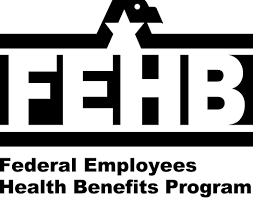Presented by Paystrubmakr.com  By John Wolf and Tom Cullen CPA
By John Wolf and Tom Cullen CPA
Keep trucking Paystubmaker and learn more about insurance.
Special Enrollment Period Through August 15, 2021
Through August 15, 2021, there is a special enrollment period for health insurance through HealthCare.gov. If you don’t have health insurance, you may enroll in coverage from the Health Insurance Marketplace during this period. If you or your family members enroll in coverage from the Health Insurance Marketplace, you may be eligible for advance payments of the premium tax credit to help pay your premiums. Find out more at HealthCare.gov.
The Affordable Care Act contains comprehensive health insurance reforms and includes tax provisions that affect individuals, families, businesses, insurers, tax-exempt organizations and government entities. These tax provisions contain important changes, including how individuals and families file their taxes. The law also contains benefits and responsibilities for other organizations and employers.
- Split-Dollar:

Split-dollar life insurance plans will be covered elsewhere in this chapter. The advocates of the use of split-dollar and executive whole life bonus plans stress the flexibility in coverage of employees and amounts of insurance. Furthermore, the federal estate and income tax results of these two plans are well established.

-
Disadvantages:
The significant disadvantages currently affecting retired lives reserve plans concern the coverage of employees, amounts of insurance, and federal tax consequences. Thus, while some insurers will not consider an under-ten life case because the IRS prohibits medical examinations, other insurers either ignore this prohibition or obtain disclaimers from prospective employers. Another concern is the possible income tax liability of the fund to the employee at retirement based on the restricted property rules of §83. Section 83(e)(5), as amended by TRA ‘86, provides that §83 will not apply to group term life insurance to which §79 applies.
Thus, when an employee retires, the vested reserve at the retirement date will not be subject to current taxation if the coverage constitutes group-term life insurance. Instead, the employee will be taxed yearly on the group term insurance provided under §79. The Senate Report states that this favorable tax provision does not apply where the employee receives a permanent guarantee of life insurance coverage from the insurer.
Employer-Provided Health Coverage Informational Reporting Requirements: Questions and Answers IRS
- Reserve Account:
Since the insurance company requires reserves from which premiums will be paid from the date of retirement until the employee’s death, an employer makes actuarial determinable contributions during the working for a lifetime of each employee which will be sufficient to accumulate to the required reserve amount at the employee’s retirement. The employer’s contributions to the reserve account are currently deductible as an ordinary and necessary business expense under §162(a). However, the specific IRS guidelines for determining a deduction are contained in R.R. 69-382.

- Revenue Rulings:
In R.R. 69-382, the IRS stated that the amounts contributed to the reserve fund must be no greater than the amount needed to fairly allocate the cost of post-retirement insurance over the employee’s working life. Also, the employer must have no right to recapture any amounts so contributed long as any active or retired employee remains alive. In most cases, the employer’s contributions will be made until the employee reaches retirement age, although some insurers permit funding to continue on a post-retirement basis. The employee is not currently taxed on the employer’s contributions to the retired lives reserve fund since the employee has no interest in the fund (§83(a), (b), and §402(b)).

Employment Relationship by International Labor Organization
- Qualified Trusts:
Retired lives reserve plans are typically funded through tax-exempt trusts under §501(c)(9) (VEBAs) for larger employers, particularly where guaranteed insurance amounts are not desired. Concerning the closely held corporation, however, life insurance guarantees are important factors to consider. Insurance companies will generally provide group term life insurance under a master trust with the retired lives reserve plan contributions maintained in a separate fund. The retired lives reserve fund can be in the form of an accumulation fund, a deposit administration rider, or a group annuity contract.
- Non-qualified Trusts:
Some companies also recommend the use of a taxable trust to fund the retired lives reserve plan. Even though the trust is currently taxable on income or gains, if the trust is funded through annuity contracts, there will be no tax on the build-up of cash values. At each employee’s retirement, the annuity matures and provides increasing payments designed to pay for the annually growing term premiums.

paystumbmakr.com team thanks you for a visit and reading this blog Pays tub online About pay stubs
Learn how to create your pay stub
paystubmakr.com
Disclaimer: John Wolf and paystubmakr.com are making a total effort to offer accurate, competent, ethical HR management, employer, and workplace advice. We do not use the words of an attorney, and the content on the site is not given as legal advice. The website has readers from all US states, which all have different laws on these topics. The reader should look for legal advice before taking any action. The information presented on this website is offered as a general guide only.


